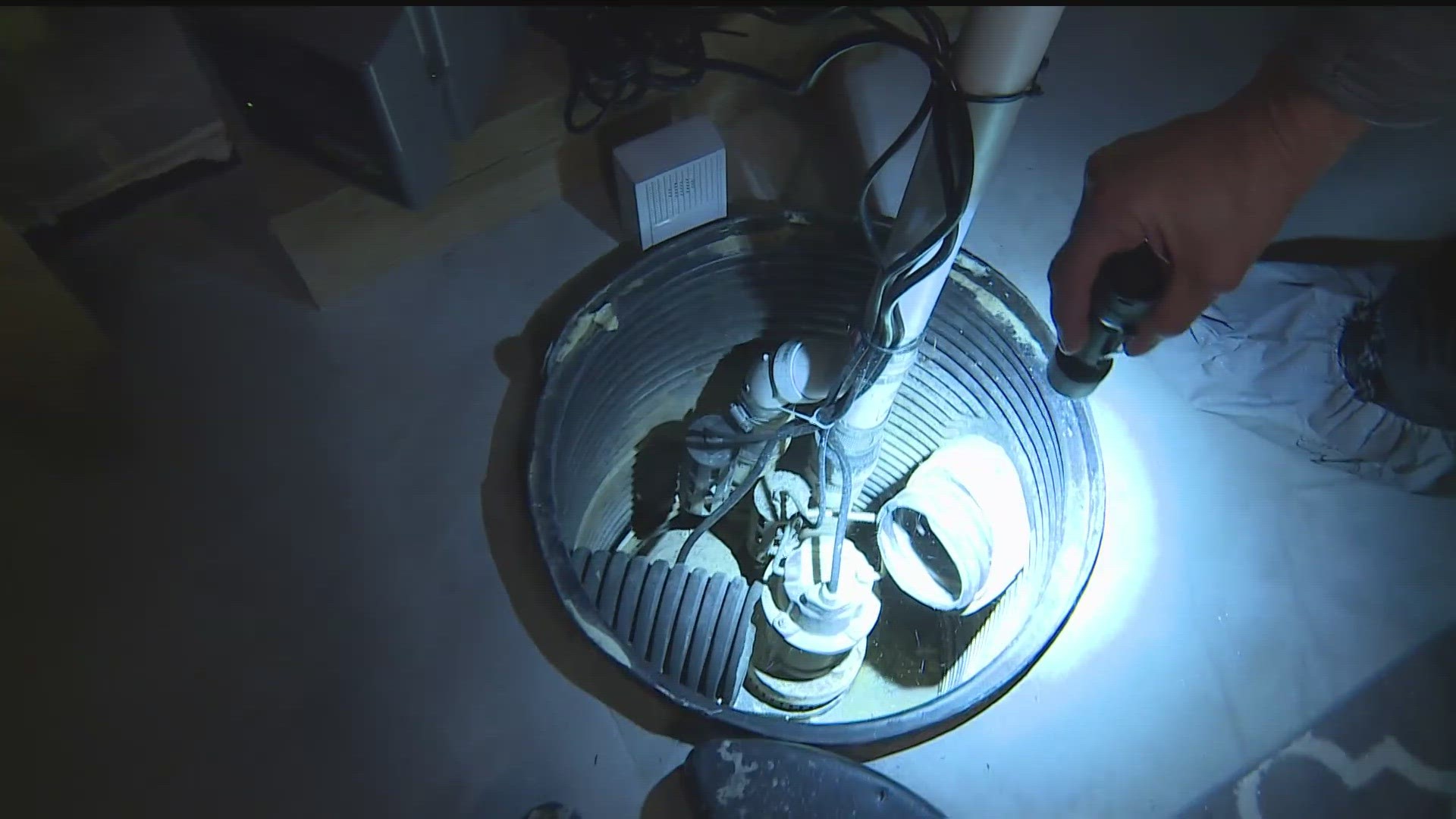MINNEAPOLIS — With all the snow this year, basement flooding is a big concern for some homeowners, but there are things you can do to prevent that from happening.
"We've already seen numerous this winter and we're going to see a bunch more,” Pete Truhlar says.
Truhlar is the Plumbing Installation Manager at Dean’s Home Services.
He and his coworkers say the spring flooding season is already underway.
“I think we’ve got four or five calls on the board today and we had a couple more on Saturday,” Truhlar says.
The two most common problems Truhlar sees in the field involve sump pumps.
“We’ll see a lot of calls where the pump isn’t working. The pump has sat all winter and like people, they need to be exercised once in a while. If it just sits, sometimes the impellers can corrode and they won’t fire up,” Truhlar explains.
The other main issue Truhlar sees is a frozen hose line.
“They will freeze up and then the pump will not pump water out of the house. It will also burn out the pump when that happens and oftentimes, we have to replace the pump, it can’t be saved,” Truhlar says.
His best recommendation for homeowners is to take the cap off your sump pump basin and see if the basin needs to be cleaned.
“Sometimes it can get filled up with dirt and rocks and stuff and that can clog things up,” Truhlar explains.
He then recommends dumping a few gallons of water into the basin to see if your pump is working properly.
“You can’t just listen for the pump to kick in. You have to physically watch it so that the water goes down,” Truhlar says.
If the water doesn't go down, you might have a frozen hose outside.
If the hose is still buried underneath the snow, you should dig it out so the sun can start melting the ice.
You can also speed up the process with a hair dryer or another safe heating source.
Truhlar recommends taking your house off in the Fall, so it doesn’t freeze up during the Winter.
Another good option for homeowners is to buy a backup battery for their sump pump in case you lose power.
Water alarms can also offer an additional level of protection.
These alarms can be placed on the ground next to the sump pump basin and the alarm will trigger when it detects water on the floor.
Truhlar also recommends sealing up cracks in your floor and wall so the water can't come in, and digging the snow out of your basement windows so the melted snow doesn't get inside.
The last thing is to check your gutters, and make sure they're not frozen or clogged with leaves.
And if you're really worried, you could dig out the snow around your house so it doesn't melt and get into the basement.
"It could help but that's an awful lot of work. Your back's gotta be good for it,” Truhlar laughs.
You may also want to consider flooding insurance.
Basic homeowners’ policies don't cover flooding in your basement, you have to buy that extra.
The Insurance Federation of Minnesota sent out a reminder Monday morning that says you must have your policy for at least 30 days before filing a claim.
WATCH MORE ON KARE 11+
Download the free KARE 11+ app for Roku, Fire TV, and other smart TV platforms to watch more from KARE 11 anytime! The KARE 11+ app includes live streams of all of KARE 11's newscasts. You'll also find on-demand replays of newscasts; the latest from KARE 11 Investigates, Breaking the News and the Land of 10,000 Stories; exclusive programs like Verify and HeartThreads; and Minnesota sports talk from our partners at Locked On Minnesota.
- Add KARE 11+ on Roku here or by searching for KARE 11 in the Roku Channel Store.
- Add KARE 11+ on Fire TV here or by searching for KARE 11 in the Amazon App Store.
- Learn more about KARE 11+ here.

